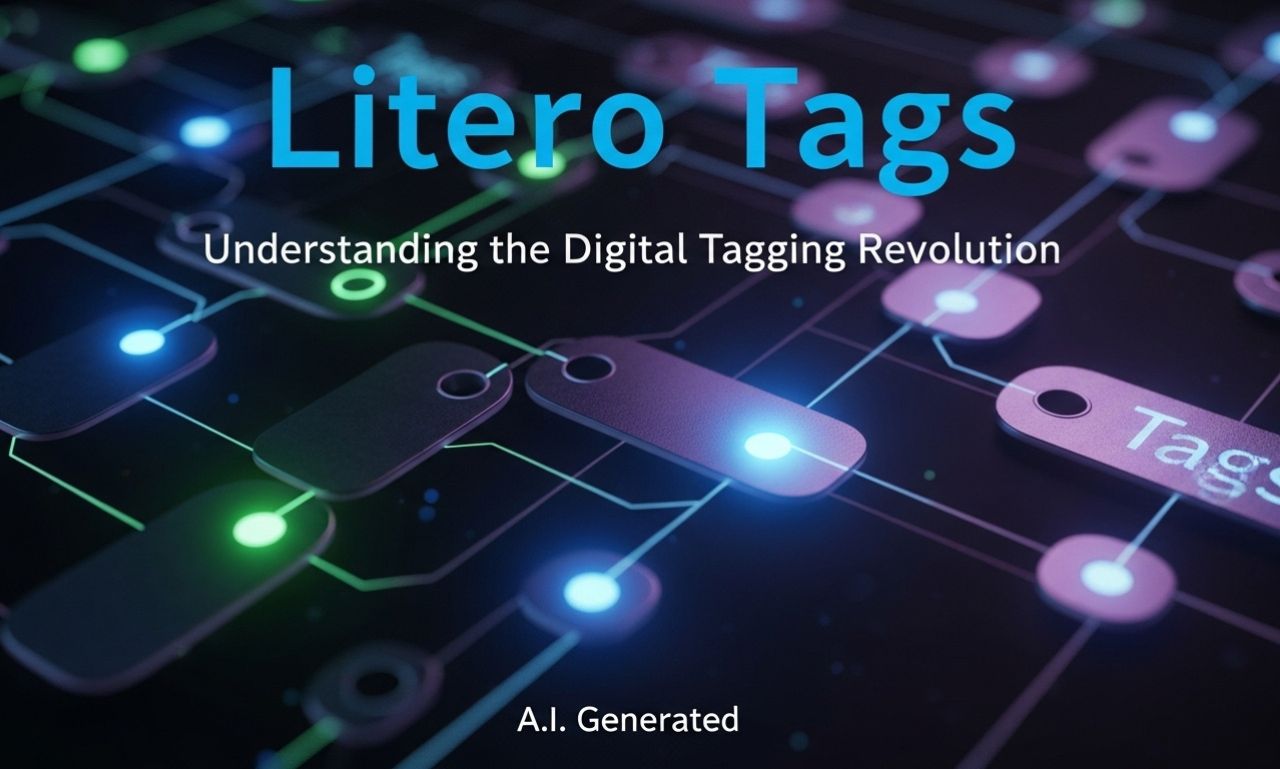In the digital era, organizing content efficiently has become crucial for creators, businesses, and developers. One of the emerging tools that has gained attention for streamlining content organization is Litero Tags. This innovative system allows users to categorize, label, and manage digital content more effectively, improving discoverability and workflow efficiency.
Whether you’re a content creator, a developer managing a platform, or a business optimizing its digital assets, Litero Tags offers a flexible and scalable approach to tagging and organizing information.
What Are Litero Tags?
LiteroTags are digital labels or markers applied to content, documents, or data points to facilitate better organization, searchability, and workflow automation. Unlike traditional folder systems, LiteroTags allow for multidimensional categorization, enabling a single piece of content to belong to multiple categories simultaneously.
This approach provides users with more control over how information is stored, retrieved, and analyzed, making it particularly valuable for dynamic digital environments.
Key Features of Litero Tags
1. Flexible Tagging System
LiteroTags support multiple tags per item, enabling content to be categorized in more than one way. This flexibility helps avoid the limitations of rigid hierarchical structures.
2. Easy Search and Retrieval
By applying LiteroTags to content, users can quickly search and retrieve relevant materials, even across large digital libraries or databases.
3. Automated Organization
Many platforms incorporating LiteroTags include automation features, such as:
-
Tag-based content sorting
-
Dynamic filtering
-
Personalized recommendations
4. Compatibility Across Platforms
LiteroTags can be integrated into websites, content management systems, and digital platforms to enhance usability and organization.
5. Analytics and Insights
Tagging content allows platforms to track usage patterns, engagement, and trends, providing valuable insights for creators and businesses.
Applications of Litero Tags
1. Content Management
In blogs, video platforms, and publishing systems, LiteroTags allow creators to categorize content efficiently, making it easier for users to discover relevant material.
2. E-Commerce
Online stores use LiteroTags to label products, enabling better searchability, filtering, and personalized recommendations for shoppers.
3. Education and E-Learning
Educational platforms apply LiteroTags to lessons, modules, and resources, allowing students and teachers to quickly locate relevant content and track learning progress.
4. Business Operations
Businesses use LiteroTags in document management systems, helping employees quickly find internal resources, reports, or project files.
5. Creative Projects
For collaborative creative projects, LiteroTags can categorize tasks, assets, and versions, streamlining communication and workflow among team members.
Benefits of Using Litero Tags
-
Improved Organization: Content can be structured logically without limiting flexibility.
-
Faster Access: Users can retrieve information quickly through search and filtering.
-
Enhanced User Experience: Simplifies navigation and discovery for end-users.
-
Actionable Insights: Tags allow for analysis of content usage and trends.
-
Scalability: Works efficiently with small projects or large-scale digital libraries.
Challenges and Limitations of Litero Tags
-
Initial Setup: Applying consistent tags across content can be time-consuming at first.
-
Tag Overload: Using too many tags may create confusion or reduce effectiveness.
-
Maintenance: Regular review is needed to ensure tags remain relevant and accurate.
-
Compatibility: Not all platforms support advanced tagging systems without integration work.
Why LiteroTags Are Important in Modern Digital Workflows
In today’s information-rich world, the ability to organize and retrieve content efficiently is crucial. Litero Tags provide a solution by:
-
Enabling multidimensional organization
-
Reducing time spent searching for resources
-
Supporting automated content management
-
Enhancing discoverability and engagement
Platforms that utilize Litero Tags can significantly improve both user experience and operational efficiency.
Future of Litero Tags
The potential for Litero Tags is expanding with technological advancements:
1. AI-Driven Tagging
Artificial intelligence may automatically generate and apply tags based on content analysis, further reducing manual effort.
2. Cross-Platform Integration
Litero Tags could unify content management across websites, apps, and cloud platforms, providing a seamless experience.
3. Enhanced Analytics
Future implementations may provide deeper insights into user behavior, content trends, and engagement metrics through tags.
4. Personalized Experiences
By analyzing tagged content, platforms can offer personalized recommendations and workflows for users.
Conclusion : Litero Tags
LiteroTags are a versatile and powerful tool for organizing digital content. They provide flexibility, improve searchability, enable automation, and offer valuable insights across industries. Whether used in education, e-commerce, creative projects, or business operations, Litero Tags help streamline workflows and enhance the overall digital experience.
As technology advances, the adoption of intelligent tagging systems like LiteroTags will continue to grow, making digital content more accessible, manageable, and actionable than ever before.

